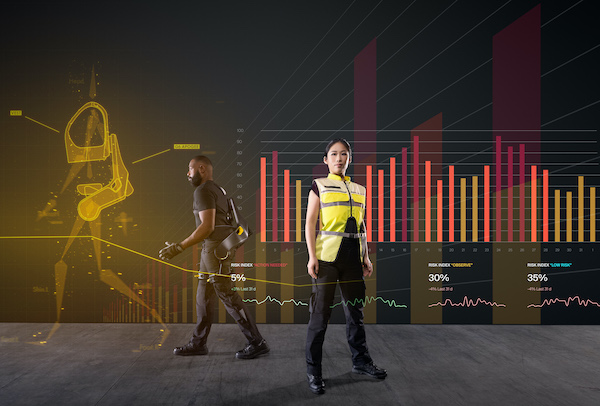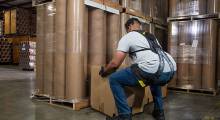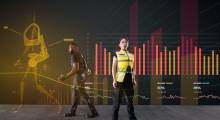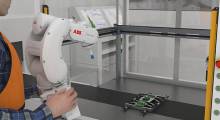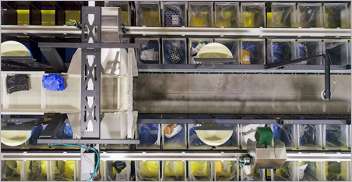German Bionic today announced at the Consumer Electronics Show, or CES, new wearable devices that it said use artificial intelligence to make physically demanding jobs safer and less strenuous. They include its Apogee power suit, the Smart SafetyVest, and the German Bionic IO cloud-based software platform.
In addition, the Augsburg, Germany-based company will demonstrate its Cray X exoskeleton, which won the CES 2023 “Best of Innovation” award for wearable technologies. In addition to enterprises such as L’Oreal, JBS, Ecolab, and Lanxess, global logistics firms including DPS and retailers like British electronics chain Currys trust the Cray X, it said.
“With our new wearables, we are empowering hard-working people with the tools they need to do their jobs more safely and sustainably,” said Norma Steller, chief procurement officer of German Bionic.
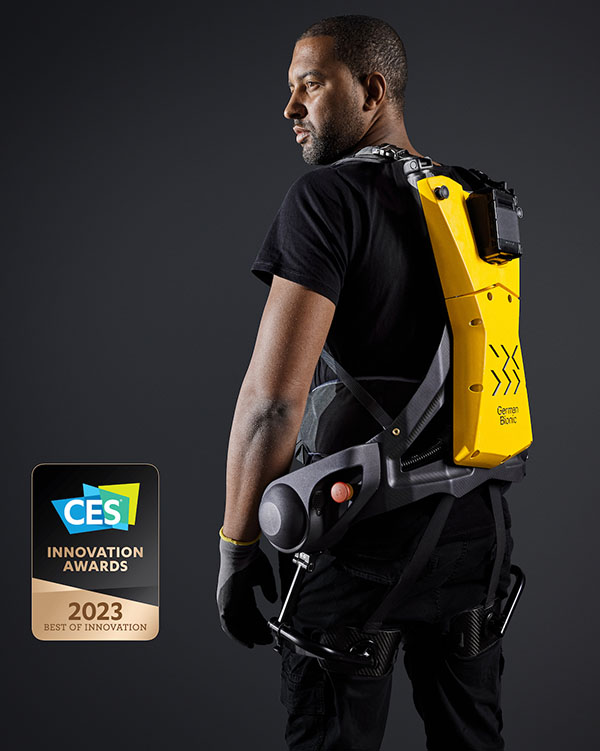
“Both our new ergonomic wearables—Apogee and Smart SafetyVest—as well as our award-winning Cray X exoskeleton enable us to provide the right support for just about any company or work environment where manual work is performed,” she said. “And with the German Bionic IO data platform, we also deliver a powerful analytics tool for workplace ergonomics and processes.”
Wearables can help prevent injury, alleviate worker shortages
Industries that rely on manual materials handling, such as manufacturing, logistics, and construction, are facing severe labor shortages. This is made even more challenging as workers age or fall out of the labor force on a temporary or permanent basis due to injury, said German Bionic.
In particular, musculoskeletal disorders (MSDs) affect about 1.71 billion people globally and are the leading contributor to disability worldwide, according to the World Health Organization (WHO).
Lower-back pain was the single biggest reported cause. Repeated heavy lifting places considerable strain on the musculoskeletal system, which can lead to the development of MSDs.
The U.S. Institute of Medicine estimated the economic burden of workplace MSDs as measured by absenteeism, compensation costs, lost wages, and lost productivity at $45 billion to $54 billion annually in the U.S. alone. And as populations continue to age, these figures will rise, said German Bionic.
The company said its exoskeletons and smart wearables can make physical labor less strenuous and more attractive, while simultaneously raising productivity.
“Our smart power suits and wearables protect people performing tough physical work on a daily basis in system-critical jobs against over-exertion and injury,” stated Armin G. Schmidt, co-founder and CEO of German Bionic. “They provide mechanical support for lifting and carrying, and use a smart assistance system to alert users, for example, of instances of incorrect lifting or when they should take a break.”
“This leads to less time off work as a result of illness caused by excessive strain or accidents, which not only makes for happier employees but also more productive employees,” he added. “We see this as a benefit for society as a whole, and hope to build on this even further with our technology.”
Apogee suit designed for the workplace
German Bionic claimed that Apogee is “the lightest and most versatile AI-supported power suit.” It is lighter than its predecessors and broadens the areas of application, the company said.
The dust and water-resistant device can maximize workplace safety by providing up to 66 lb. (30 kg) of support for the lower back per lifting movement. It can also help minimize fatigue, thanks to active walking assistance, according to German Bionic.
The company said it designed Apogee to integrate easily in workplaces. The exoskeleton can immediately benefit industries where heavy lifting and carrying regularly take place, such as logistics, construction, and healthcare.
Smart SafetyVest includes ergonomic monitoring
German Bionic said its Smart SafetyVest incorporates advanced sensory capabilities and AI to deliver data-based, personalized ergonomic insights. It can also provide assessments and recommend actions at the press of a button.
In addition to custom workplace insights, the Smart SafetyVest can pinpoint ergonomic risks and opportunities to reduce fatigue and injuries that can otherwise lead to high levels of illness and absenteeism. These improvements are regardless of the type of work being performed, said German Bionic.
German Bionic IO offers visibility
The German Bionic IO platform not only makes occupational health and safety practices measurable, but also visible, said the company. The cloud-based software can analyze data collected from Apogee, Cray X, and Smart SafetyVest.
It applies machine learning and AI to continuously learn and enhance safety effectiveness with the wearer’s every movement, said German Bionic. The platform enables companies to discover risks and trends, as well as optimize processes unique to their environments and devices, it asserted.
The Smart Safety Companion early warning system provides alerts for instances of poor posture, incorrect lifting, and excessive strain. The German Bionic IO platform provides monitoring and reporting functions, as well as individualized recommendations for action based on relevant data, said the company.
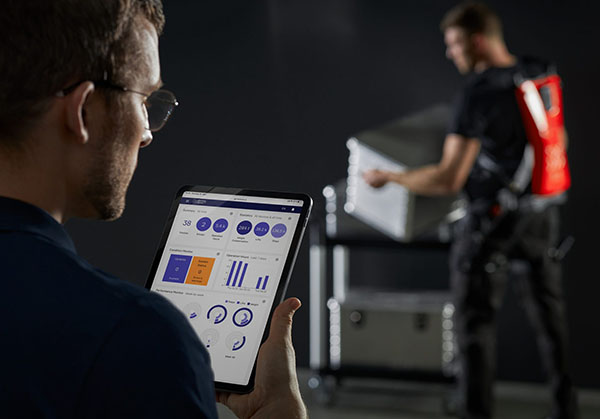
See smart tech at CES 2023
German Bionic said that the latest generation of its smart wearables can be seen at Booth 7141, Tech East, West Hall, at CES in Las Vegas. The event is from Jan. 5 through 8.
German Bionic claimed that it was the first company to deliver connected exoskeletons for the workplace, applying self-learning and AI to support lifting movements and prevent poor posture, “thereby becoming an intelligent link between humans and machines.”
The company said its technology, “which puts people back at the center of Industry 4.0,” has received awards including the Fast Company “Innovation by Design Award,” the German Entrepreneur Award, and a nomination for the Hermes Award at Hannover Messe. German Bionic has offices in Berlin, Tokyo, and Boston.
Article topics
Email Sign Up

